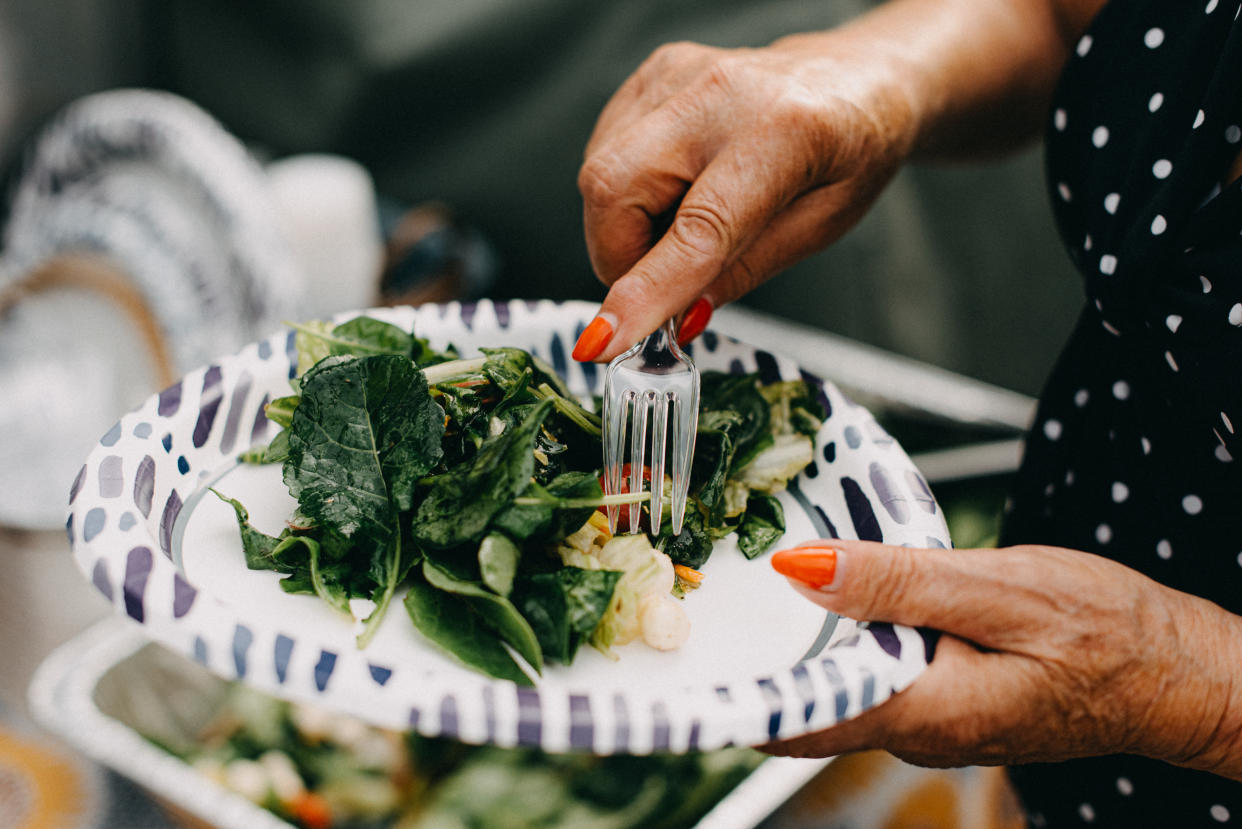How diet can contribute to PCOS symptoms, according to an expert

Polycystic ovary syndrome (PCOS) affects around one in 10 women in the UK.
It is a hormonal condition that can result in irregular periods, thinning hair, infertility, and weight gain among other things.
One of the more common symptoms of PCOS is bloating, which can occur due to a gut health imbalance.
"Those with PCOS have dysbiosis of the gut microbiome, an imbalance of the gut bacteria which includes a lack of diversity and low levels of ‘good’ gut bacteria," Jodie Relf, PCOS Dietician and spokesperson for MyOva, says.
"Alongside this, research has also indicated that those with PCOS have a higher prevalence of irritable bowel syndrome (IBS) in comparison to those without PCOS. The exact reasons for this are not clear, however we know that both gut dysbiosis and IBS can result in symptoms such as bloating, diarrhoea, constipation, increased gas and cramping."
How diet affects bloating in PCOS
Your diet can have a significant impact on PCOS as it can worsen or improve your symptoms depending on your food choices.
"Two of the biggest drivers of PCOS symptoms are inflammation and insulin resistance. Both are largely influenced by our diet and the foods we eat," Relf explains.

"In addition to this, studies have shown that an imbalance in gut microbiota plays a role in the development of PCOS through triggering low grade chronic inflammation and insulin resistance."
Diet and lifestyle choices can often be a contributor to bloating, even in women with PCOS. Relf says that there are four key things you can do to try and minimise bloating and to restore the balance of good and bad gut bacteria.
1. Increase probiotic consumption
"To do this it’s important that we consume foods which contain good bacteria and eat foods that nourish those bacteria," Relf explains.
"The bacteria in our gut are live organisms and therefore require good nourishment to keep them alive. Foods naturally containing probiotics include kefir, kimchi, sauerkraut, kombucha, natural yoghurts, miso, and tempeh. Including these in your diet as regularly as possible, ideally daily, will help increase the amount of good bacteria present."
2. Limit sugar and ultra-processed food intake
Relf also adds that reducing sugar intake and limiting consumption of ultra-processed foods can improve gut microbiome balance.
"A diet high in these foods can have a negative impact on our gut microbiome," she adds.
3. Increase fibre consumption
"It’s also important to feed the good bacteria with lots of fibre by including plenty of fruits and vegetables in your diet, as well as wholegrain foods," Relf says.
"When increasing fibre intake remember to increase your fluid intake as well, as fibre draws water into the bowels."

4. Work on managing stress
Additionally, Relf says stress can impact our gut health as it can cause cravings and increase stress hormones.
"Therefore managing stress is an important step in restoring balance and therefore being able to reduce bloating."
PCOS: Read more
Middle-aged women with PCOS are at risk of 'early brain ageing' and gut issues (Yahoo Life UK, 5-min read)
Woman with PCOS shows off full beard, inspires others to love their facial hair (Yahoo Life UK, 3-min read)
PCOS, hormonal imbalances and their link to nutrition (In The Know, 2-min read)


